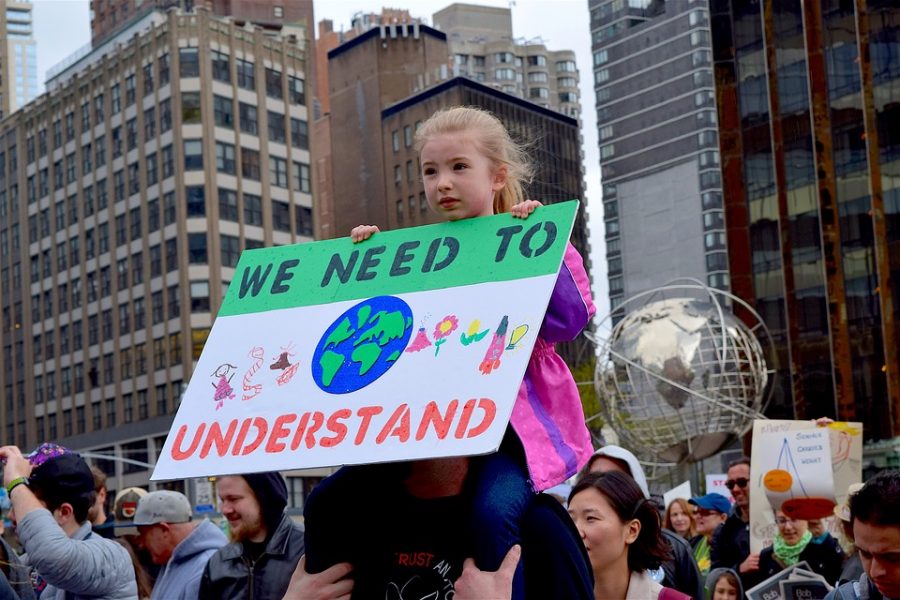Populism wave should be acknowledged, not scorned
A young protester holds a sign during March For Science Protest. Columnist Cole notes the importance of paying attention to the roots of the Nationalist movements at home and abroad.
May 2, 2019
To many political observers, President Trump’s victory over Hillary Clinton in the 2016 election came as a shock. Professional pollsters and the commentariat were almost unanimous in predicting a landslide victory for Clinton, and although it has been noted by some that the polling lead she enjoyed was somewhat overstated, the predominant response was still bewilderment.
Subsequent explanations of the 2016 election have fallen into two main categories. On the one hand, some remain bewildered, unconvinced that there is any rational explanation for much of America voting the way it did. On the other, those who are willing to offer a rational explanation focus on the particulars of the American situation: an unlikeable candidate, foreign interference, the release of the Comey letter a week before the election and so on.
Both camps share a conviction that whatever the reason for his election, President Trump is an historical aberration, a temporary pause in the forward march of history that politics as normal will resume as soon as he is out of the White House.
But such a view fails to see 2016 is not an isolated incident or inexplicable, but part of a worldwide reaction to some of the major trends of the last century. Ignoring that reality has cheapened public discourse, allowing the opponents of President Trump to dismiss him out of hand for his personal failings without engaging with the ideas that animated his election.
The central animating force is a resurgent nationalism, reacting against globalization in all of its manifestations but particularly its economic, demographic and cultural displacements. Across the Western world, there have been similar surges of this new nationalism, seen in the U.K.’s 2016 vote to leave the European Union, the success of nationalist parties both in Western Europe, as with the French National Rally and the coalition government in Italy between the Five Star Movement and the Lega Nord, as well as in Eastern Europe with Viktor Orban’s government in Hungary.
Get The Daily Illini in your inbox!
Although perhaps most prominent in the West, there are new nationalists all over the world: Narendra Modi, Xi Jinping, Vladimir Putin and Jair Bolsonaro all are reacting to the challenges of globalization.
Though there is much variety in the nature of this new nationalist movement, there are certain features common to all of them. Some of the most prominent threads are the revitalization of a nation’s cultural patrimony, especially in those countries that have absorbed large numbers of immigrants; the reassertion of national sovereignty in the face of supranational decision-making bodies like the United Nations or the E.U.; and a determination to put the interests of a nation’s citizens as the foremost priority in formulating policy, particularly in matters of economics and trade.
One may disagree with the arguments put forward by these new nationalists, but failing to engage with them impoverishes one’s understanding of the new political reality.
Although sometimes hard to see amidst the tumult of the day-to-day, there are serious concerns, shared by people across the world, that helped bring the president to office. Those who oppose him should look to address the concerns of the people who voted for him, and not simply heap scorn on them. That attitude contributed to his election in the first place.
Cole is a junior in LAS.






